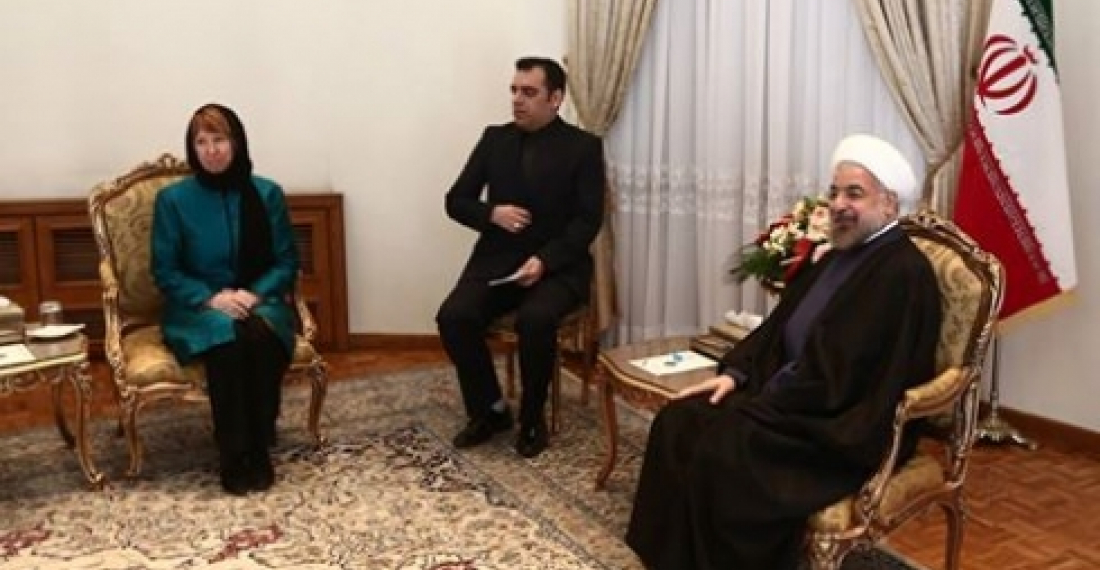The European Union's High Representative for Common Foreign and Security Policy, Catherine Ashton, has concluded a two day visit to Iran during which she met President Hassan Rouhani and other Iranian leaders for discussions on a wide range of issues.
In public comments Ashton remained cautious about the prospect that the interim agreement on Iran's nuclear programme reached last year could be developed soon into a comprehensive agreement. "This interim agreement is really important but not as important as a comprehensive agreement [which is]... difficult, challenging," Baroness Ashton said at a joint news conference with Iranian Foreign Minister Javid Zarif. "There is no guarantee that we will succeed." There was, she added, a need for support from all sides.
On his part Mr Zarif said Iran had shown good faith and political will, adding: "We have done our side. It is up to the other side... to come to the negotiating table with a desire, decision and commitment to reach a mutually acceptable agreement."
However in comments later, Baroness Ashton was more upbeat, "One of the things that’s been very clear is the support that is given across the political spectrum for the work that is going on currently in Vienna to try and move forward on a comprehensive agreement. That does not mean that we’ll get an agreement; it does not mean that people are committed to any possible outcome at this stage, but I have had a realsense that people are committed to wanting to see the talks happen and that, I think, is encouraging of itself," she said. "It's also been for me interesting to see during the visit that people have wanted to talk across a spectrum of different issues and have been willing to meet with me and engage and that, I think, is important. Not surprisingly a number of issues in the region have been big focal points, but I'm at least encouraged that we've been able to talk frankly about some of these issues and I hope that if we are successful with the negotiations, and it's a big if, that we'll be able to start to move forward on a range of different issues with Iran", she added.
source: commonspace.eu with agencies
photo: EU Foreign Policy chief, Catherine Ashton in a meeting with the president of Iran, Hassan Rouhani in tehran on 9 March 2014, (picture courtesy of the European External Action Service).






